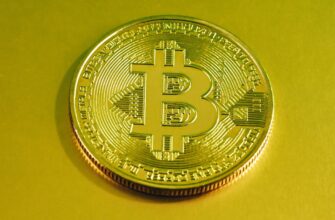Cryptocurrency and Islamic Finance: The Halal vs. Haram Debate
Cryptocurrency has sparked global debates about its compatibility with Islamic principles. As digital currencies like Bitcoin and Ethereum gain popularity, Muslims seek clarity on whether they align with Sharia law. Mufti Taqi Usmani, a renowned Islamic scholar and expert in Islamic finance, has addressed this issue, offering critical insights into why cryptocurrencies may conflict with Islamic ethics.
Key Principles of Islamic Finance
Islamic finance operates under strict Sharia guidelines, which include:
– Prohibition of Riba (Interest): Earning or paying interest is forbidden.
– Avoiding Gharar (Uncertainty): Transactions must be clear, with no excessive risk or ambiguity.
– Ban on Maisir (Gambling): Speculative activities resembling gambling are prohibited.
– Asset-Backed Transactions: Investments must link to tangible assets or services.
These principles form the basis for evaluating cryptocurrency’s permissibility.
Mufti Taqi Usmani’s Stance on Cryptocurrency
Mufti Taqi Usmani, a leading authority in Islamic economics, has declared cryptocurrencies like Bitcoin haram due to several concerns:
1. Lack of Intrinsic Value: Cryptocurrencies are not backed by physical assets or regulated by governments, making them highly speculative.
2. Volatility and Gharar: Extreme price fluctuations introduce unacceptable uncertainty, violating the prohibition of gharar.
3. Use in Illegal Activities: Crypto’s anonymity enables money laundering and fraud, conflicting with Islamic ethics.
4. Resemblance to Gambling: Trading crypto often mirrors gambling, which is explicitly forbidden.
Usmani emphasizes that currencies must derive value from state authority or tangible backing, which cryptocurrencies lack.
Counterarguments: Can Crypto Ever Be Halal?
Some scholars argue that specific cryptocurrencies could comply with Sharia under strict conditions:
– Asset-Backed Tokens: Coins tied to gold or real estate may avoid gharar.
– Utility-Focused Projects: Blockchain platforms providing halal services (e.g., supply chain tracking) might be permissible.
– Stablecoins: Fiat-backed stablecoins like USDC could reduce volatility.
However, Mufti Usmani maintains that most cryptocurrencies remain problematic due to their speculative nature.
Steps for Muslims Considering Crypto Investments
If exploring crypto, Muslims should:
1. Consult knowledgeable Islamic scholars.
2. Avoid tokens with no real-world utility.
3. Steer clear of margin trading or interest-based platforms.
4. Prioritize transparency and compliance with Sharia principles.
FAQ: Cryptocurrency Halal or Haram?
Q: Is Bitcoin halal according to Mufti Taqi Usmani?
A: No. Usmani classifies Bitcoin as haram due to its speculative nature and lack of intrinsic value.
Q: Are there any halal cryptocurrencies?
A: A few scholars approve tokens backed by physical assets, but mainstream coins like Bitcoin or Ethereum remain contentious.
Q: Can Muslims use blockchain technology?
A: Yes. Blockchain itself is a neutral tool and permissible if applied ethically (e.g., halal supply chains).
Q: Why is volatility an issue in Islamic finance?
A: Extreme price swings create gharar (uncertainty), which Islam prohibits in financial transactions.
Conclusion
Mufti Taqi Usmani’s critique of cryptocurrency highlights core conflicts with Sharia principles, particularly around speculation and volatility. While some niche tokens may meet Islamic standards, most cryptocurrencies remain high-risk and ethically questionable. Muslims should exercise caution and seek guidance from qualified scholars before engaging with crypto assets.








